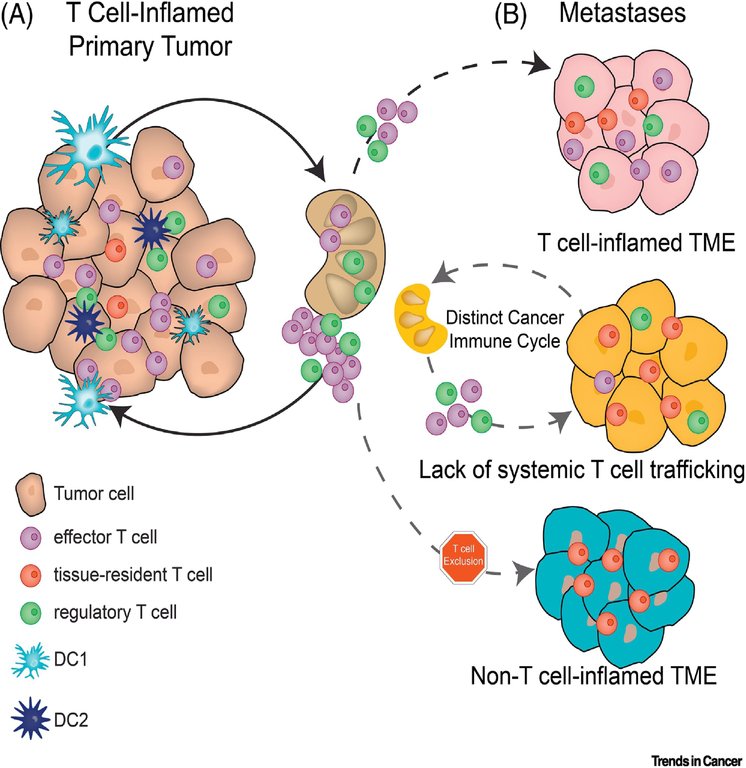Figure 1 –
The influence of tissue site on T cell inflammation of tumors
A) T cell-inflamed tumors are the result of dendritic cell activation that leads to tumor-specific T cell priming in the tumor-draining lymph node (TdLN) followed by T cell trafficking to the tumor microenvironment. Tissue-resident T cells may also expand in response to tumors, likely through pathways independent of T cell priming. B) T cell responses against metastatic cancer might infiltrate the lesion from an existing systemic immune response (top) or generate their own cancer immune cycle independent of the immune response against the primary tumor (middle). Further metastasis may exclude T cells from infiltrating even if a systemic immune response is generated.

